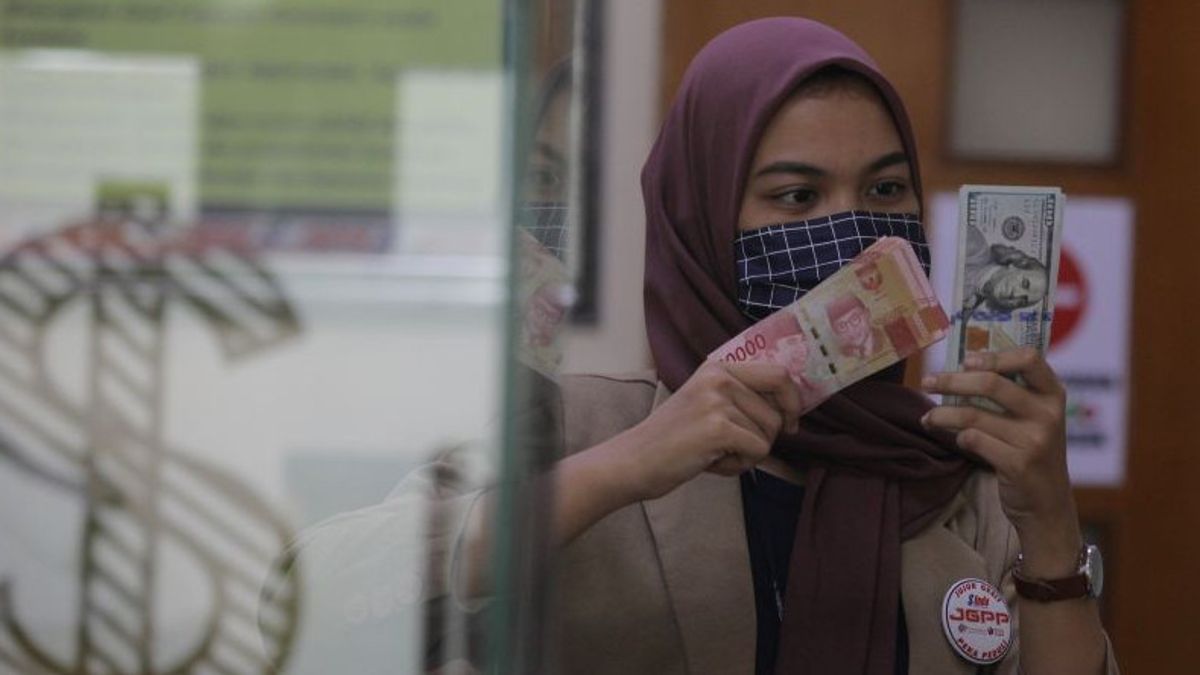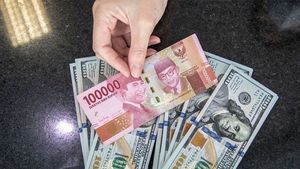JAKARTA - Head of Economist of PT Bahana Sekuritas Satria Sambijantoro said Bank Indonesia (BI) has the potential to increase the benchmark interest rate by 75 basis points (bps) in the Board of Governors' Meeting (RDG) in October 2022.
"We consider the possibility that BI may have to surprise consensus again by raising 75 bps to increase domestic liquidity of foreign exchange (varlas) which is thin and restrains the decline in rupiah," Satria said in a study quoted by Antara, Wednesday, October 19.
According to him, there are several reasons for BI to be aggressive, namely the general situation in October which is no doubt less conducive than the previous two months, with global yields rising sharply, while selling pressure against the rupiah increasing.
BI is also lagging behind other central banks, a stance that can be taken when the domestic foreign exchange market is flooded with US dollar liquidity from a commodity boom, but not now when the rupiah is under pressure due to the decline in commodity prices coincided with the high demand for the US dollar by the end of the year among local companies.
In addition, BI at the RDG last month also highlighted the need for frontloaded steps or weighing on rising interest rates, which opened up the possibility of a higher interest rate increase than expected this month at 50 bps.
Satria continued that the possibility of increasing the benchmark interest rate by 75 bps also has the potential to be carried out because the current rupiah has weakened to Rp15,500 per US dollar.
"We read here that BI has intervened in greater numbers over the past two weeks than it has ever done before this year. The overnight foreign exchange interest rate used by BI in its monetary operations has also increased," he said.
However, he continued, this was not followed by commercial banks, which were constrained by the 0.75 percent guarantee rate for foreign exchange deposits set by the Deposit Insurance Corporation (LPS).
As a result, many of Indonesia's export revenues are stored in Singaporean banks, which offer more than three percent a year for the US dollars placed in their time deposits.
Despite the huge Indonesian trade surplus, according to Satria, the current US dollar liquidity is thin among local banks as BI is the only US dollar supplier in the foreign exchange market.
"In the tradeoff between foreign exchange reserves or interest rates, the strategy that is more sustainable for BI if it wants to hold the rupiah is to provide a large increase in interest rates," said Satria.
The English, Chinese, Japanese, Arabic, and French versions are automatically generated by the AI. So there may still be inaccuracies in translating, please always see Indonesian as our main language. (system supported by DigitalSiber.id)













